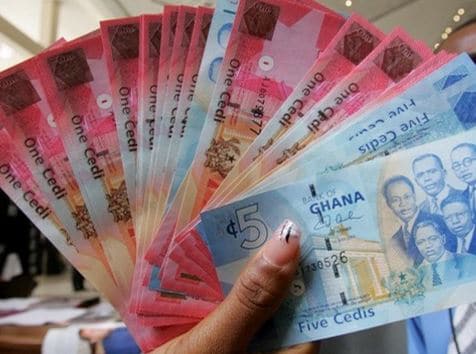The Bank of Ghana (BoG) has issued guidelines to digitise the operations of crowdfunding schemes – locally known as ‘susu’ collection, ‘nnoboa’ or ‘ntoboa’ – as part of strategies for transforming the traditional model to meet the needs of modern society and provide adequate security for contributors.
The move, according to a notice published by the regulator on February 18,2021, has become necessary due to increasing use of the mobile money platforms by associations and corporate entities for the purpose of raising funds to support members in need.
This development, the notice stated, signals the potential of digital platforms in transforming the traditional crowdfunding model to enhance its contribution to implementing the National Financial Inclusion Strategy and Digital Financial Services Policy objectives of the country.
This policy will also promote innovative digital crowdfunding solutions that comply with data protection and customer privacy regulations, good governance and accountability, relevant Anti-Money Laundering and Combatting the Financing of Terrorism (AML/CFT) norms, liquidation procedures and protection of contributors’ interest.
Crowdfunding is largely employed by the informal sector as an instrument in the mobilisation of critical funds to meet the pressing needs of members; for instance, to raise capital for businesses, payment of medical bills, funeral contributions and children’s education, among others.
The new guidelines seek to clarify the types of crowdfunding models permitted in the country and which regulatory body supervises each, and how their operations should be carried out. Currently, there are four types of crowdfunding schemes – Donation Crowd-funding, Reward Crowd-funding, Equity Crowd-funding, Debt Crowd-funding/Peer-to-Peer lending.
The notice states that models of crowdfunding currently permitted under Bank of Ghana policy are donation-based and reward-based crowdfunding. These models entail the collection, holding and disbursement of funds, and are available to banks, Specialised Deposit-Taking Institutions (SDIs), Dedicated Electronic Money Issuers (DEMIs) and Enhanced Payment Service Providers (EPSPs).
One of the directives for these types of crowdfunding schemes using Dedicated Electronic Money Issuers platform is that merchant wallets must be created and dedicated to the collection of donations. The minimum due diligence requirements corresponding to the merchant account type shall apply.
However, crowdfunding schemes which use the Enhanced Payment Service Providers will require the support of a bank or SDI to fully deliver the service, since they do not issue electronic wallets or accounts to their customers.
With regard to the other two types – Equity Crowd-funding and Debt Crowd-funding/Peer-to-Peer lending – these deal with securities and loans and leverage payment platforms for the collection and disbursement of funds; hence, they fall within the regulatory jurisdiction of both the Bank of Ghana and Securities and Exchange Commission (SEC).
Types of crowdfunding in detail
Donation Crowd-funding
Under this model, donors are usually empathetic to the initiator’s campaign and willingly give to the cause. Donors’ satisfaction or reward is in the success of the campaign, and they expect nothing in return. Campaigns are usually for charity projects.
Rewards-based Crowdfunding
With this model, contributors to a campaign are given non-financial rewards such as priority access to a successfully launched service or product or event. Registration on a reward-based crowdfunding platform requires the ‘Know Your Customer’ (KYC) information for both funders and fundraiser in the registration process. The fundraiser is also required to provide details, such as the amount needed for a project to be advertised and any other project details as required by the platform.
Equity Crowdfunding
This model is used to raise funds for start-up businesses. Investors receive equity in the entity raising the funds or a share in its revenue. Depending on the type of business and its funding requirements, restrictions may be imposed as to how much a funder can invest and how much a fundraiser can raise. Fundraisers are required to disclose such information as may be deemed necessary to enable investors make informed decisions. The equity crowdfunding platform may or may not be actively involved in promoting the sale of shares.
Debt Crowdfunding (Peer-to-Peer lending)
Debt crowdfunding platforms provide an ecosystem within which lenders and borrowers interact. Individuals are able to lend money to individuals or businesses. For this reason, it is also referred to as Peer-to-Peer lending. Lenders receive interest on loans and are paid the principal upon expiration of the loan or successful completion of the project for which the loan was obtained. This type of crowdfunding falls within the regulatory jurisdiction of both the Bank of Ghana and Securities and Exchange Commission, and requires regulatory approval from the two entities. Collaboration between the two regulators will facilitate approval and forestall the risk of regulatory arbitrage. Business loans, property loans and consumer loans are examples of this type of crowdfunding.










